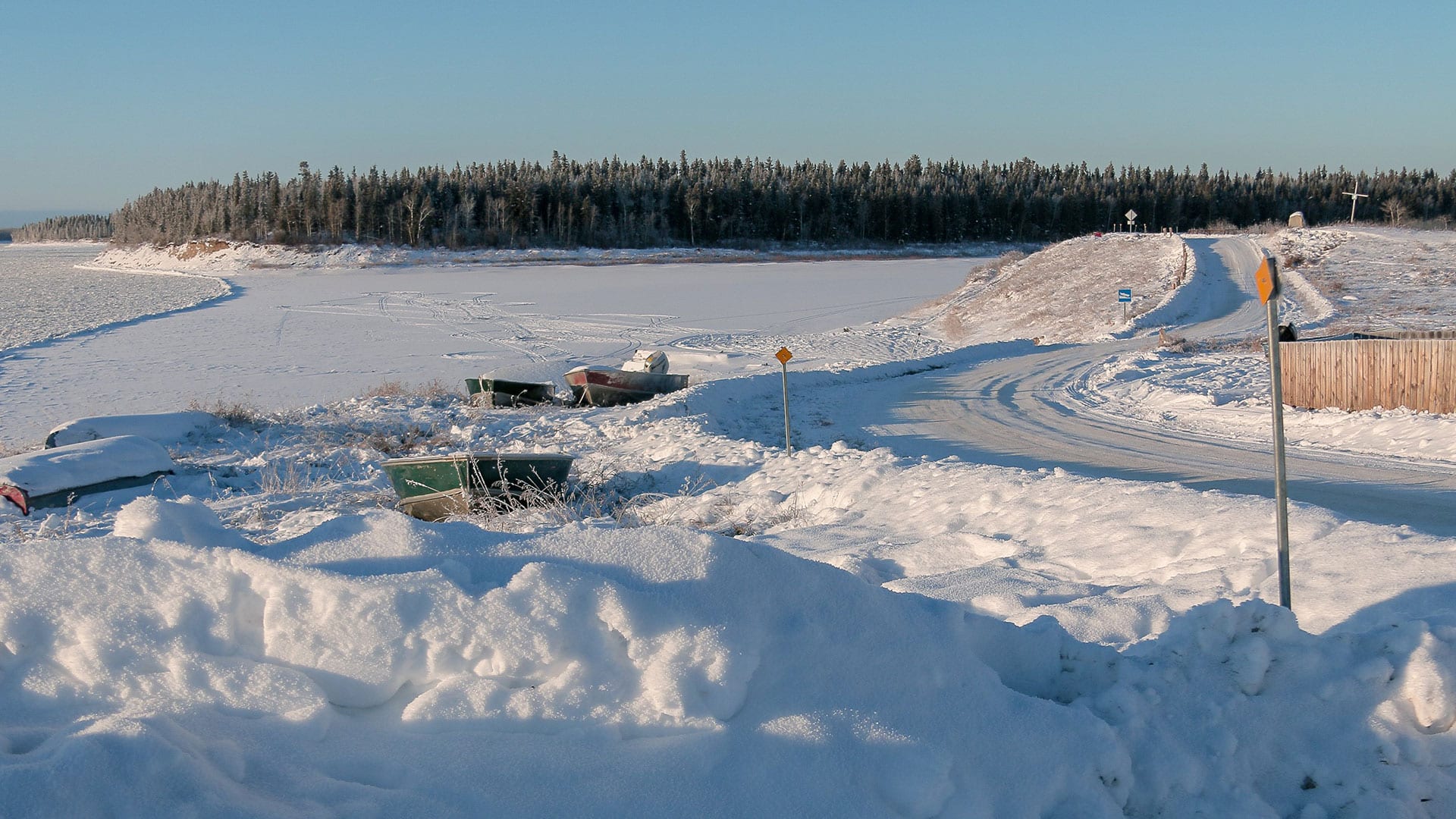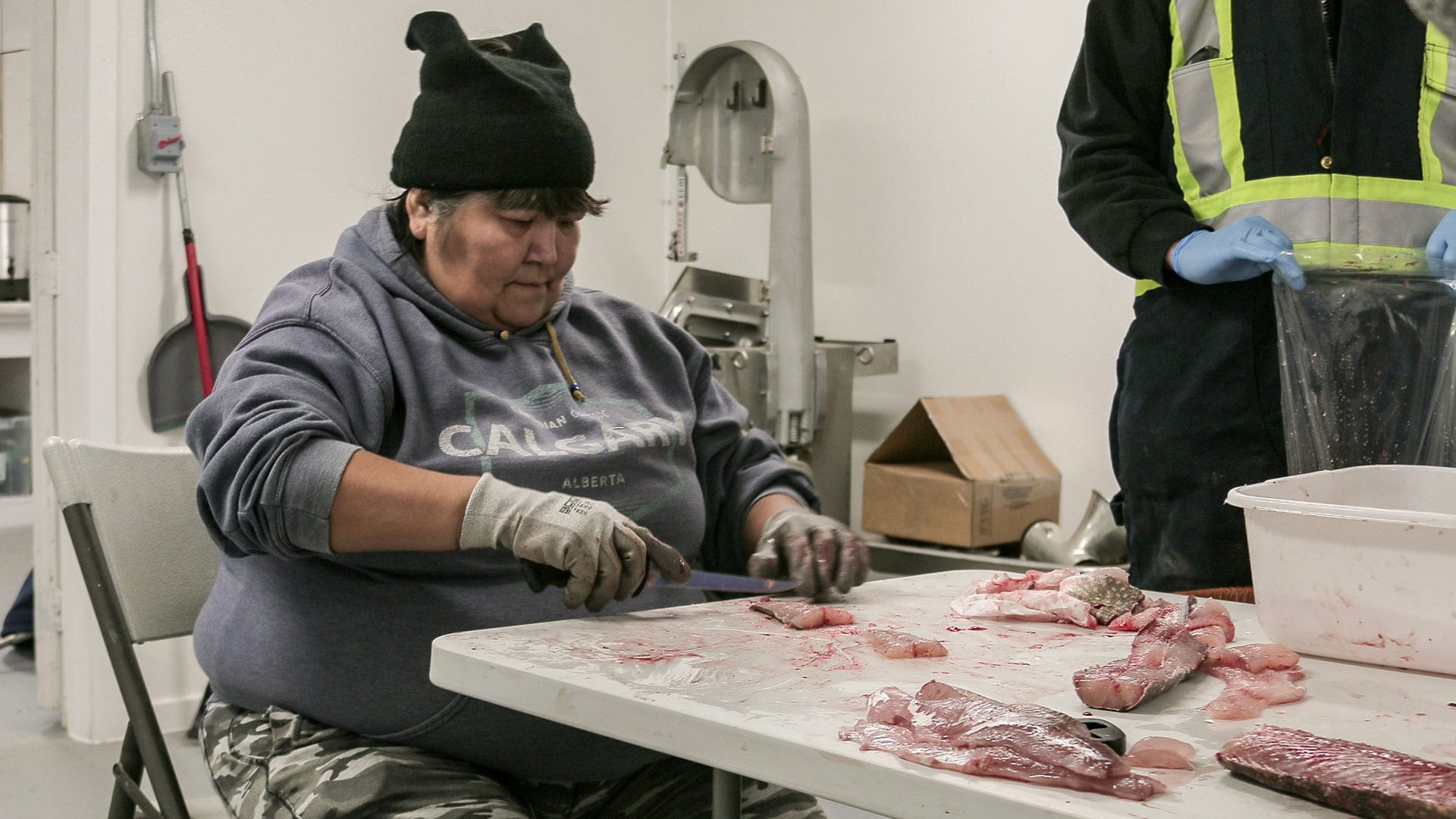For the Deh Gáh Got’îê Dene and Métis- harvesting fish from the mighty Mackenzie river is second nature.
Families in Zhahti Koe – Fort Providence, Northwest Territories have set gill nets for generations and enjoy the plentiful stocks of walleye, northern pike, whitefish, coney, loche, sucker, arctic grayling and shiner.
While fishing was traditionally used as a means of survival, the community is now looking to cast a wider net on the practice of harvesting fish.
“There’s a lot of new technology for us. Like pulling the net out of the water. We’ve been using our old backs for years and now there’s electric winches to drag it out. And setting the auger under the ice. We use to use a 2×4, now we use something we call it the submarine – it has a little prop on it and you put it in and away it goes,” Michael Vandell said.
As a longtime band councilor for Deh Gáh Got’îê First Nation, Vandell has worked hard to support the development of a new industry for his people – starting with education.
From Nov. 17 to 20, the First Nation hosted commercial fishing training, facilitated by commercial fishers from Hay River, N.W.T.
Roughly two dozen participants learned about topics such as ice safety, equipment service and repair, setting and lifting nets and processing fish.
“It’s a natural fit, a lot of them did fishing before but it is a refresher. The traditional side we can all do but there’s little things on the commercial side we can learn,” Vandell said.

The small and primarily Indigenous community is home to approximately 700 people.
Being a three hour drive west of Yellowknife means economic opportunities are limited and commercial fishing has never been a go to industry for the community.
Working on the land was one of the prime motivators for Michael Landry attending training.
“It will be good for the people give them work, opportunity to become a fisherman. And it’s good to pass it on too to younger generations,” Landry said.
Although the days can be long and physically demanding, Landry said he’s happy he took the training.
“The most challenging was using the needle bar chipping the ice. But it’s good learning how to set nets. Getting back to traditional ways. I only did it a few times during culture camp at horn river,” he said.

Like Landry, Loretta Elleze’s has fond memories of setting nets with her family as a child, but had long fallen out of practice.
She said she was inspired to take the course after attending a harvesting camp in 2019 where she learned to make dry fish.
“I just put my name in last minute and said I’ll give it a try. I said not only guys can do fish. Now I can do this on my own.” Elleze said.
As the sole woman in the group she made short work of deboning jackfish and said she’s hopeful to be hired by the band to commercially fish this winter.
Well before training, community members spent the last year restoring the local fish plant.
“We fixed this building right up. We redid all the electrical, put in a washroom with running water and finished the flooring. We brought in equipment and freezers,” Vandell said.
The plant is owned and operated by the First Nation, and until recently, only used to process meat after community hunts.
Vandell said he’s pleased with community participation in the training and plans to keep momentum going by offering a food handling certification course and then opening a small store in the plant to sell their products by the end of the year.
“We’ll have fish in here and we’ll say selling fish Monday to Thursday. What’s left Friday will be shipped out of the community [to Hay River fish plant]. At least there’ll be income coming in to the community each week,” Vandell said.
Time is of the essence for the territorial fishing industry. In July, Indigenous group Tu’cho’ Fishers’ Co-operative and the N.W.T. government penned an agreement to enact components of the territorial government’s latest strategy for revitalizing the Great Slave Lake commercial fishery, which calls for increased production and processing capabilities.
The new fish plant being constructed in Hay River will be operated by the Indigenous co-operative.
Deh Gah plans to fill their commercial quota and facilitate the availability northern fish to consumers in the N.W.T.
To do so Vandell said the band will plow an ice road deep bay, and area traditionally used for fish harvesting – and soon to be used by participants of the recent training.









